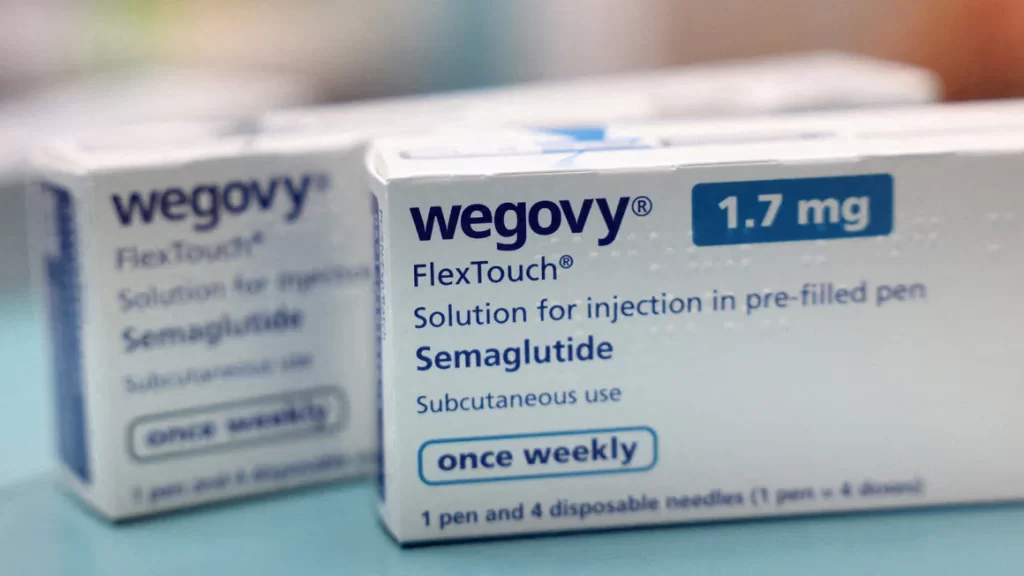7.4 million Americans could gain Medicare or Medicaid coverage for anti-obesity drugs under Biden proposal
3 min read
Hollie Adams/Reuters/File
The Biden administration is unveiling a proposal that could significantly expand access to expensive anti-obesity medications for millions of Americans. Under this plan, an estimated 7.4 million people—comprising 3.4 million Medicare beneficiaries and 4 million Medicaid recipients—could gain coverage for medications that can cost as much as $1,000 a month for the uninsured.
The new proposal aims to reduce the out-of-pocket costs of these medications, potentially lowering some Medicare enrollees’ expenses by up to 95%. The White House emphasized that this initiative would allow individuals and their healthcare providers to decide the most appropriate treatment paths without the financial barrier that currently restricts access to life-changing medications.
The administration believes the proposal will not only help individuals lead healthier lives but could also reduce overall healthcare costs across the nation. However, the White House’s announcement did not include many specifics, such as which medications would be covered, the criteria for eligibility, or the total cost of the initiative. It is also unclear whether the proposal will be finalized before President Joe Biden leaves office in January.
Concerns from Incoming Administration
The proposal’s future could be uncertain, as it may not have the same level of support under the incoming Trump administration. Robert F. Kennedy Jr., who has been appointed to lead the Department of Health and Human Services (HHS), has voiced opposition to the expansion of anti-obesity drug coverage. During a Fox News interview, he argued that addressing obesity should focus more on providing affordable, nutritious food rather than relying on expensive medications.
In contrast, Dr. Mehmet Oz, appointed to head the Centers for Medicare and Medicaid Services (CMS), has publicly supported anti-obesity drugs, often discussing their benefits on his talk show and social media. This difference in viewpoints within the Trump administration could shape how the policy evolves under the new leadership.
Limited Access to Anti-Obesity Medications
Currently, the high cost of anti-obesity medications such as Wegovy and Zepbound has limited access for many Americans. For example, Wegovy, a GLP-1 drug, can cost around $1,350 for a four-week supply, making it unaffordable for most without insurance coverage. Although Medicare has been historically prohibited from covering obesity-related drugs, recent developments have opened the door to more coverage for some beneficiaries. In March 2023, after the U.S. Food and Drug Administration (FDA) approved Wegovy for patients with cardiovascular disease who are also obese or overweight, the Centers for Medicare and Medicaid Services (CMS) allowed its inclusion in Medicare coverage for this group.
As a result, about 3.6 million Medicare beneficiaries with cardiovascular disease could now be eligible for Wegovy, with a significant portion of them also having diabetes, potentially making them eligible for other GLP-1 medications like Ozempic.
However, this expansion of coverage for some Medicare beneficiaries may come with a steep price tag. A KFF (Kaiser Family Foundation) analysis estimated that expanding access to GLP-1 medications under Medicare could cost the program nearly $3 billion annually, contributing to higher premiums for all Part D beneficiaries. Extending coverage to all Medicare enrollees with obesity could cost $35 billion over nine years. Furthermore, the savings from improved health outcomes for those with obesity or cardiovascular disease would likely be modest, according to a report from the Congressional Budget Office.
State and Employer Health Plan Coverage Variability
Access to anti-obesity drugs is inconsistent across states. Currently, only 13 states provide coverage for GLP-1 drugs for obesity treatment. Some states that do not cover these medications are considering adding them to their state Medicaid programs but are hesitant due to the high costs involved.
Additionally, employer-based health insurance plans do not always cover anti-obesity drugs. Larger employers are more likely to offer these benefits, with 18% of firms with 200 or more employees covering GLP-1 medications primarily for weight loss. Around a quarter of these employers have indicated they are likely to expand coverage for such treatments within the next year.
A Divisive Proposal
The Biden administration’s proposal to expand access to anti-obesity medications is part of a broader push to address the rising healthcare costs related to chronic diseases like obesity. While the initiative could benefit millions of Americans by reducing their healthcare expenses, it also raises concerns about the long-term financial impact on public programs like Medicare and Medicaid. Whether the proposal will survive the transition to the next administration or be implemented at all remains uncertain. In the meantime, advocates and critics alike continue to debate the role of pharmaceuticals in addressing the nation’s obesity epidemic.







